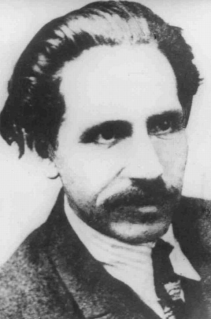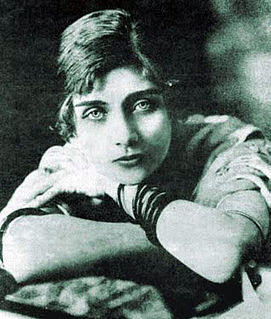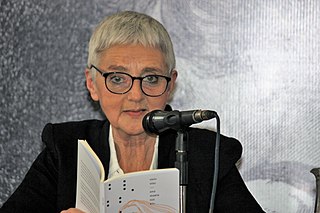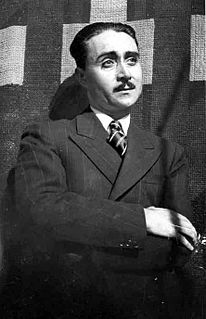Miguel Salinas Arteche, best known as Miguel Arteche, the name he adopted after legally reversing his maternal and paternal surnames in 1972, was a Chilean poet and novelist. He was born in Nueva Imperial, Cautín, 9th Region, on June 4, 1926, but spent most of his adult life in Santiago, Chile serving in academics. He was also awarded government positions, both in Chile and abroad. His writings appeared first in the Anthology of the Generation of 1950, compiled by Enrique Lafourcade, a well-known Chilean writer.

Carlos Pezoa Véliz was a poet, educator and journalist from Chile. His literary work remained largely unpublished until his death at the age of 28. He was posthumously recognized as a major figure in the history of Chilean poetry.
Pablo Miguel Huneeus Cox, born in Santiago, 1940, and raised in New Jersey, is a Chilean writer and social critic.
Joaquín Edwards Bello was a Chilean writer and journalist of British descent.

Eduardo Anguita Cuéllar was a Chilean poet, who was awarded the Chilean National Prize for Literature in 1988.

Chilean literature refers to all written or literary work produced in Chile or by Chilean writers. The literature of Chile is usually written in Spanish. Chile has a rich literary tradition and has been home to two Nobel prize winners, the poets Gabriela Mistral and Pablo Neruda. It has also seen three winners of the Miguel de Cervantes Prize, considered one of the most important Spanish language literature prizes: the novelist, journalist and diplomat Jorge Edwards (1998), and the poets Gonzalo Rojas (2003) and Nicanor Parra (2011).

Salvador Reyes Figueroa was a Chilean writer who won the 1967 Chilean National Prize for Literature.

Efraín Barquero was a Chilean poet. He won the Chilean National Prize for Literature in 2008.

Ambrosio de Benavides Medina Liñán y Torres was a Spanish colonial administrator who served as Royal Governor of Puerto Rico, Royal Governor of Charcas and Royal Governor of Chile.

Antonio Acevedo Hernández was a Chilean writer. Hernández was a self-taught novelist, playwright and writer whose works include theater, novels, short stories, literary and journalistic chronicles, essays, poetry and popular Chilean folklore. He created over 840 works, including the plays Almas perdidas,El Vino triste,La Sangre, and El Rancho. He was awarded the Premio Nacional de Teatro in 1936. His work, along with that of authors like Germán Luco Cruchaga and Armando Moock, marked the beginnings of Chilean dramaturgy.

María Teresa de las Mercedes Wilms Montt was a Chilean writer, poet, and anarcha-feminist. Described as "embodying sexual aberrance and social prophesy", she was a friend of the writers Ramón Gómez de la Serna, Enrique Gómez Carrillo, Joaquín Edwards Bello, Víctor Domingo Silva, and Ramón Valle-Inclán.

Ana María del Río is a Chilean literature professor, feminist writer, and novelist. Her honors include the Santiago Municipal Literature Award and the María Luisa Bombal Award.
Stella Corvalán Vega was a Chilean writer and poet. She mainly explored the genre of poetry ascribing itself to an aesthetic stance close to surrealism. She is included together with Homero Arce, María E. Piwonka, Mila Oyarzún, and others in the group of writers known as the Generation of '38.
The Generation of '38 was a Chilean artistic-literary movement that tried to portray the social decline of the time in its works. It became prominent in the cultural panorama of the 1930s.
Blanca Santa Cruz y Ossa was a Chilean writer and editor of children's and young adult literature, with a special focus on intercultural literature, writing and compiling stories related to Chilean and international legends and myths.

Camilo Marks is a Chilean human rights lawyer, academic, writer, and literary critic.

Óscar Castro Zúñiga was a Chilean writer and poet. His literary work covered both the lyrical genre and the narrative genre, much more realistic and close to the criollismo movement.
Sonia Cristina Montecino Aguirre is a Chilean writer and anthropologist. In 2013, she was awarded the Premio Nacional de Humanidades y Ciencias Sociales

Humberto Waldemar Asdrúbal Baeza Fernández, also known as Tito Fernández and El Temucano, is a Chilean singer-songwriter and folklorist. He recorded and released more than 40 albums from the 1970s to the present.
Mario Bahamonde Silva (1910-1979) was a Chilean poet, critic, short story writer and teacher. He was born in Taltal. He was the rector of the Liceo de Antofagasta. He was recognized as a key literary figure in the north of Chile, and wrote several books about the region and its arts and culture.











